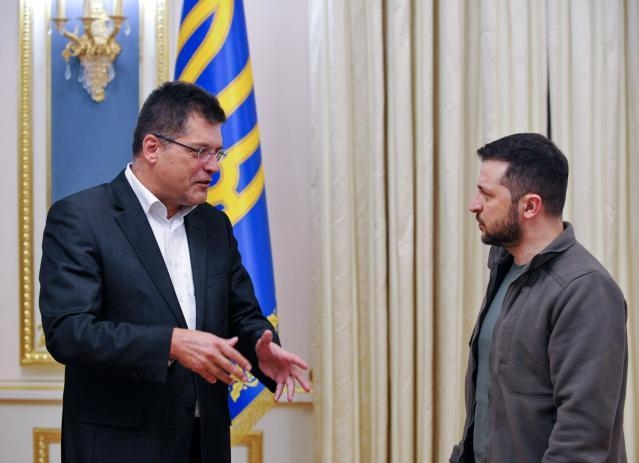The European Commission will provide new emergency shelter and winterised facilities to Ukraine, as Russia’s war continues to destroy civilian infrastructure. Furthermore, the Commission will provide an additional €175 million in humanitarian assistance to support those most in need in Ukraine and Moldova.
The announcement comes as Commissioner for Crisis Management, Janez Lenarčič, visited Ukraine yesterday to help coordinate one of the EU’s most extensive emergency response operations. During his visit, he met with President Volodymyr Zelenskyy, as well as the Deputy Prime Minister for European and Euro-Atlantic Integration, Olga Stefanishyna; the Minister for Foreign Affairs, Dmytro Kuleba; the Minister of Internal Affairs, Denys Monastyrsky; and the Minister for Communities and Territories, Oleksiy Chernyshov.
Commissioner Lenarčič said: “The upcoming winter is likely to bring major challenges to Ukraine and we must be prepared. Via our rescEU reserve, a temporary shelter capacity will be immediately deployed to three different regions in Ukraine: Rivne, Bucha and Kharkiv. In addition, the EU is boosting its humanitarian aid funding with further a €175 million to provide education, food, access to water, and protection from the cold winter for the most vulnerable. We are also working together by preparing a pathway for Ukraine to join the EU Civil Protection Mechanism.”
EU humanitarian response this winter will include:
The rescEU strategic reserve will be mobilised to deploy emergency stockpiles of shelter units and other items to Ukraine with a total value of €62.3 million. Overall, together with a second shelter reserve hosted by Romania, the EU has acquired the capacity to provide temporary emergency shelter for up to 46,000 people.
An additional €175 million [1] in humanitarian aid will target the most vulnerable in ukraine. Out of this, €150 milion is allocated for operations in Ukraine, while €25 million is for operations in Moldova. The key priority is to provide winterised shelter in view of the expected freezing temperatures. Other priorities include education in emergencies, health, and protection assistance. This new funding will bring the total of EU humanitarian aid in response to Russia’s war in Ukraine to over €500 million.
The European Commission and Ukraine have also started to work together to prepare Ukraine to join the EU Civil Protection Mechanism in the future. The Mechanism has already been mobilised in its full force to support Ukraine with more than 70,000 tonnes of life-saving items delivered to Ukraine from 31 different European countries.




